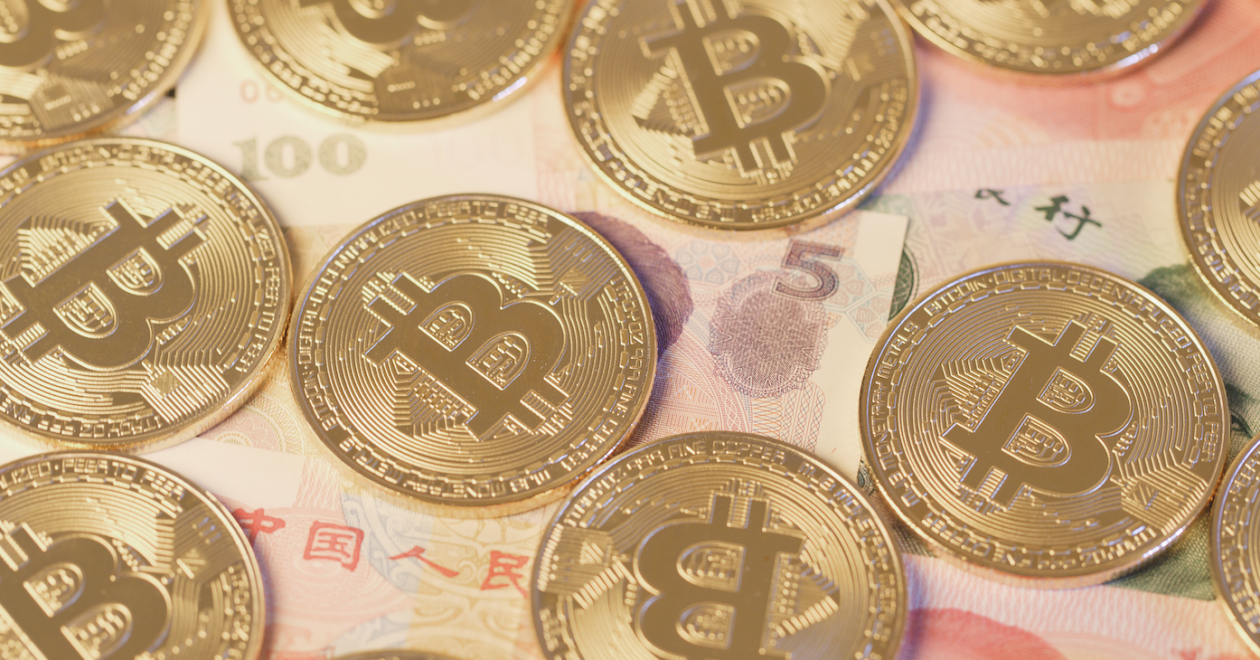China on Friday afternoon dropped the news that it will ban all cryptocurrency-related transactions. Crypto service providers are quickly reacting to the news to stay compliant.
Huobi, for example, has stopped registering new customers in mainland China and said it plans to retire all mainland China user accounts by the end of this year.
“Huobi’s customers will be able to transfer their assets to other exchanges or wallets over the next few months,” Jun Du, co-founder of Huobi Group, parent company of the Huobi Global exchange, said in an emailed statement to Forkast.News.
“Due to historical reasons, we do have a certain proportion of our user base in mainland China. Retiring mainland Chinese user accounts will have a certain impact on the company’s revenue in the short term,” Du said, adding that Huobi’s diversified businesses outside of China have reached nearly 70% in terms of trading volumes.
Binance and OKEx both told Forkast.News that they have been blocked in mainland China since 2017.
“Users in China have not been able to access our site since then. As such, Binance does not currently hold exchange operations in China,” a Binance spokesperson said in an emailed response.
OKEx said its website has not been accessible in China since 2017, nor is its app available to download in the region, so that it is “operating as usual” outside of China and is “closely monitoring the situation and will continue to work constructively with relevant policy-making authorities in jurisdictions where we operate.”
One top-20 crypto exchange, which has around 25% to 30% of its users in China, will pause onboarding new Chinese users, but existing users won’t be affected at this point, one of its executives told Forkast.News in an emailed response. The executive asked to withhold the company’s name because of the political sensitivities.
Some other smaller players are also ceasing services. BHEX said over the weekend that it will “permanently shut its services” to stay compliant with rules of various jurisdictions. TokenPocket, a decentralized multi-chain wallet, said it will terminate some functions for mainland users in the wake of the new notice. Loopring Technology Limited, a protocol for building decentralized exchanges, also decided to stop offering services to mainland users.
Meanwhile, industry leaders in China are supporting the ban, saying China is very serious this time, especially when this notice is issued by not just the central bank but legal, public security, and banking authorities.
Zhou Yu, blockchain lead of UnionPay’s Innovation Center, said the new notice suggests a stricter-than-ever regulatory stance on cryptocurrency.
“From the consumer’s perspective, [the ban] is to protect the interests and rights of consumers from being scammed or suffering investment losses,” Zhou said on Sunday at the 2021 Blockchain-based Service Network (BSN) Global Partnership Conference.
“This kind of [crypto] transactions is hard to regulate and can’t allow all residents to trade fairly. It’s hard to regulate technically. So it has to be banned in China,” He Yifan, CEO of Red Date Technology, the company behind the BSN project — a public-private nationwide infrastructure project to spur mass adoption of blockchain technology — said at the BSN conference.
Chinese authorities might be more committed to combating crypto-related crimes than one might think. Zhang Xiaoxiao, founder of ChainAudit, which provides consulting services to China’s public security departments on economic criminal activities, told Forkast.News that Chinese authorities would be able to chase after cross-border criminal activities such as fraud or gambling if a crypto service provider ever commits such crimes that span internationally.
Potential impact
As suggested by the notice, “investors who hold crypto are at their own risk,” said Rachel Lin, co-founder of decentralized derivatives exchange SynFutures. “This implies that China hasn’t banned users’ trading.”
Zhang said that the notice suggests that transactions involved with ICO or derivatives would be illegal and not protected by law, but trading crypto among individuals should be protected by law, as cryptocurrency comes with commodity attributes.
Zhang’s comments come in line with some court decisions in China. A Minhang district court in Shanghai stated in August that it heard a case in which a plaintiff purchased Bitcoin mining machines from a defendant but later claimed the deal was invalid given the People’s Bank of China’s 2017 guidance that prohibited initial coin offerings (ICO) and thus demanded a refund for the machines.
The court stated that it ruled the deal was valid and that although Bitcoin is not currency, it holds the attributes of a virtual commodity given its exchangeability, excludability and availability. The court also described Tencent’s QQ coin and points, Baidu’s virtual coin, and virtual currencies like Bitcoin as virtual properties because they require a certain degree of resources, properties and energy to obtain.
On top of that, the Hangzhou Internet Court, begun in 2017 to hear internet-related cases, recognized Bitcoin in 2019 as legal virtual internet property that deserved to be treated like other assets.
A crypto investor who requested anonymity told Forkast.News that some casual retail investors might just give up, but more hardcore traders will likely either figure out know-your-customer requirements elsewhere or swap to less regulated decentralized exchanges.
For exchanges, there might be some negative impact in the short term, and it’ll take time for them to retire existing Chinese users, a China-based analyst who declined to be named told Forkast.News.
The analyst said that the mainland employees who work for overseas exchanges are most likely coders and “it’s meaningless to chase after them.”
Unless there are more rules in place that restrict investors from holding or privately trading, the impact from the new notice will likely be minimal for investors, the analyst said.
“I have some expat friends in crypto chat groups, and some of them are in a panic now, asking whether they are committing a crime by using local internet to do crypto transactions. This is certainly an overreaction,” Lily Z. King, COO of a Singapore-based crypto custody and asset management platform, wrote in a Forkast.News commentary. “Only those who promote crypto assets to Chinese people and facilitate crypto transactions will likely be the key targets of this crackdown.”
Michelle Lim contributed to reporting.






